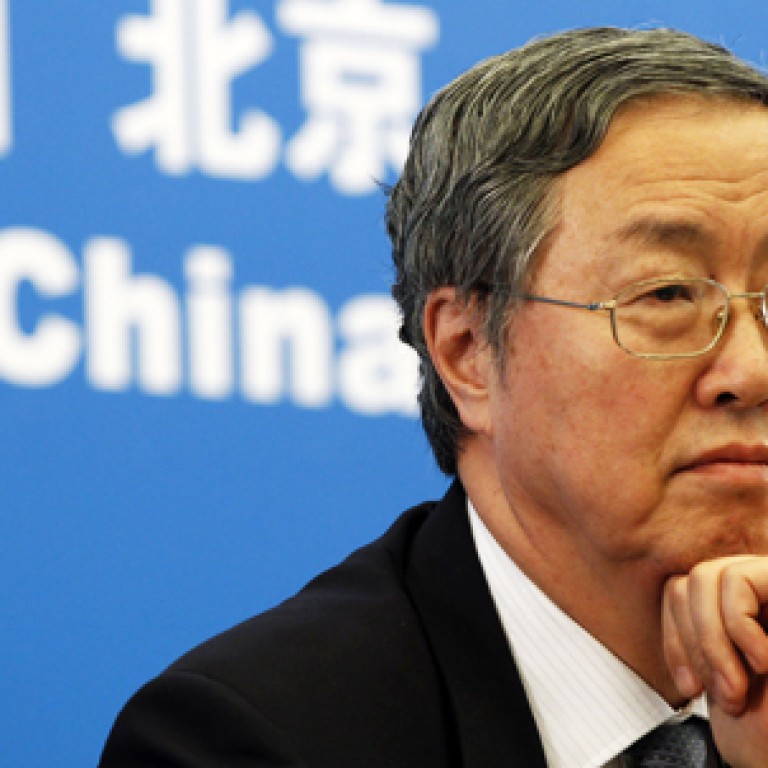
China central bank says currency near equilibrium
China’s currency has reached its equilibrium rate and its value is mainly determined by the market, rather than intervention, Beijing’s central bank chief said on Sunday, signalling there is little likelihood of major movement in the yuan’s value in the near future.
In a speech delivered by one of his deputies, Zhou Xiaochuan, governor of the People’s Bank of China, also warned that too much monetary easing by major economies puts inflationary pressure on China at a time when it is striving to boost growth while keeping prices under control.
Zhou’s remarks came as the issue of China’s exchange rate against the US dollar resurfaced in the US presidential race, with Republican nominee Mitt Romney accusing President Barack Obama of ducking an important decision on whether Beijing is manipulating its currency to gain a trade advantage.
The Treasury Department was due to announce a decision on that on Monday, but it said on Friday that the decision would not come until after global finance officials meet in early November, most likely after the November 6 presidential election.
The US has long urged China to lift controls on foreign exchange markets that Washington contends keep the Chinese yuan undervalued, making the country’s exports relatively less expensive in overseas markets.
Zhou said China’s central bank has refrained from intervening in the market in the past year, while the exchange rate against the US dollar has remained at about 6.3 yuan per dollar.
“The rate, the spot rate and future rate, determined by the market supply and demand, basically are very close to the equilibrium rate,” he said.
The yuan has appreciated more than 30 per cent against the US dollar in nominal terms since 2005, Zhou said, adding that the currency had “appreciated quite a bit in the past 15 years”.
Zhou outlined progress China has made in reforming its financial sector and setting up foreign exchange markets, in the speech delivered following the annual meeting of the International Monetary Fund and World Bank, held this past week in Tokyo.
Zhou himself was among several top bankers and other officials who stayed away from the meetings, apparently to express China’s anger over a territorial dispute with Japan that erupted into sometimes violent anti-Japanese protests last month across many Chinese cities.
IMF and World Bank officials downplayed the friction over disputed islands in the East China Sea, saying they were confident China and Japan, the world’s second- and third-largest economies, recognise they have more to gain from co-operation than from conflict.
On Friday, Japan’s foreign minister, Koichiro Gemba, confirmed that the two sides had held high-level discussions in Tokyo and plan vice-ministerial level talks in a next round. Gemba did not give a timeline.
In his talk, Zhou reiterated Beijing’s concern over inflationary pressures that China and some other developing countries say can be worsened by monetary easing in the US and Europe. Fighting inflation is his No 1 priority, he said.
In a question-and-answer session, Zhou’s deputy, Yi Gang, said China plans an appropriately sized stimulus package to counter its economic slowdown.
It will be “large enough to stabilise growth but not too large to cause negative impact or problems in the future,” Yi said.
The task is complicated by so-called quantitative easing that unleashes liquidity in global markets, spurring speculation in commodity and energy markets, he said.
But Yi said the outlook for price stability was fine this year, with the consumer price index likely to fall to 2.7 per cent for the year, well below the government’s 4 per cent target.
“The key word is to ensure stability,” he said.
